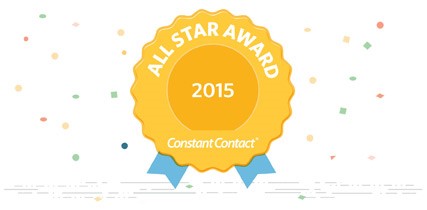|
Coming in OCTOBER
|
OCTOBER is
Fair Trade Month!
3-7 Read In Week (Get out and go read in a school!)
1 Intern'l Day of Older Persons (UN)
2 Intern'l Day of Non-Violence
4 National Taco Day (my house)
5 World Teachers Day
7 Random Acts of Poetry Day
9 Clergy Appreciation Day
10 World Mental Health Day (UN)
11 Intern'l Day of the Girl Child (UN)
16 World Dictionary Day
16 World Food Day (UN)
17 Intern'l Day for the Eradication of Poverty (UN)
17 Clean Your Virtual Desktop Day
21 Count Your Buttons Day
31 BOO!

|
|
Shout Out!
|
A big thanks to some who made my life better in
September!
Stephanie Baran
David Cheoros
Brian Edwards
Carrie Habinski
Alex D Mackie
Glenda Polack & Caprice West
Laura Raboud
Judy Stelck
Wanda Stephens & Lil Stephens
Janna Tominuk
David Winchester
"Our road will be smooth and untroubled
no matter what care life may send;
if we travel the pathway together;
and walk side by side with a friend."
- Henry van Dyke
|
|
Links/Websites
|
If You've Got 10 Minutes (A bit about microvolunteering)
Click Here
How Having a Back-Up Plan Could be Holding You Back (Makes perfect sense to me)
Click Here
Cold Weather Beer Mitt (Want this!)
Click Here
Watch 60 New NFB Films for Free (It's true)
Click Here
What Your Playlist Says About Your Personality (There's even a quiz!)
Click Here
A New Energy Efficient Condo in Edmonton (Hopefully)
Click Here
P@@P Cafes are Real (Honestly, people...)
Click Here
LUE-42 Enterprises (Mine)
|
Are You a Yes or No Person?
|
|
Many who read my e-zine volunteer for boards or work in the NFP sector (i.e., the ones who
can't say NO). But there's another segment of our population that
can't say YES.
I was interested in a recent blog by Heather Matthews that was geared to that group. Apparently people who can't say yes tend to believe bad things happen (rather than good things).
Matthews has this advice about
saying yes.
Nothing to lose. You may lose some stability or comfort when you say yes, but the benefits almost always outweigh the risks. By saying no, you risk being
stagnant. Matthews says,
"It's dangerous to not want to take risks because that's when you really lose something. You lose your gusto for life, for learning and exploring."
People want to be around positivity. The people you most like hanging out with are probably
fun. People who are quick to say no usually don't get invited out as much.
YES opens doors, NO puts up walls. Matthews says,
"You'll start to notice that when you say yes to something, it snowballs into more things that sound like good ideas." But when you say no, people may think twice about asking you next time. If you want people to keep coming to you, say yes more.
My mom had a great zest for life, but in later years something changed. She'd decline a lunch invitation two weeks in the future on the off chance that she wouldn't be feeling well that day. That seemed like a waste! I'd try to change her mind, "Why not say yes and give yourself something to look forward to? You can cancel later if you don't feel well." She seldom changed her mind and boy, did we ever argue about that!
As for you, dear reader, you still have time to choose. I wish you insight and balance in declaring your NOs and YESes.
/lmwe
|
3 Things for Unproductive Meetings
|
In the August 2016 issue of
Inc. magazine, Nisha Ahluwalia's article (which originally appeared in
The Muse) talks about
three habits to get into in order to make your
meetings more productive.
- Make eye contact.
Maintaining it demonstrates engagement, interest, and respect.
- Ditch the laptop. Many things usually done on computer can easily be done by hand, like taking notes on paper, or sharing data on a printed-out spreadsheet. If a computer is an absolute must, minimize its use. It's too easy to get distracted.
- Don't go if it's not relevant. It may be better to stay at your desk and be productive than show up and look bored. Find out what the meeting is about, why they want you there, what you need to prepare in advance, and what you hope to accomplish by the end. If it's not a "fit" talk to the meeting organizer about not going.
Here's the article
Click Here
|
|
Heard in the Board Room
|
"I know...children are our future. Blah blah blah. I have one." (Coffee came out my nose)
"Discluded" (I think it's like excluded but worse)
"We suck." (It was true that day!)
"There are several exit ramps from the plan." (It's good to have options)
AND! In two separate Boards someone used a word that (starts with P) and is just not "on". But I shouldn't have to tell you that.
/lmwe
|
|
Reader Notes
|
***
Contributors to this issue: John Mellec, Ernie Paustian, Laureen Regan, Ralph Suppa
|
| We Did It Again (Thank you!) |

|
| Books by Moi |
| Understanding Bylaws: A Guide for Directors of Not-For-Profit Organizations ISBN 978-0-9866030-0-6 (NOTE: There is great stuff in here, but this book isn't aligned with the Federal NFP Corporations Act or the new BC Societies Act. Email me directly with your bylaws questions about NFPs registered federally or in BC) Exceptional Board Members, Exception Boards ISBN 978-0-9866030-1-3
|
| * |
| With fond acknowledgement to Douglas Adams and The Hitchhikers Guide to the Galaxy |
| Join Our List |
 |
Spread the Word!
|
To forward this to a friend click below
To use the content, please include this blurb: Linda Wood Edwards and LUE-42 Enterprises produces "Life, the Universe, and Everything" for her clients and subscribers. Visit www.lue42.com for more information
|
|
|

|
|
|
|
What is it about September and non-profits? I get that we want to give volunteers the summer off and don't want to waste time getting back in the groove. But in the 4-day week that followed Labour Day, for example, I had 3 Board meetings, 1 joint Board facilitation, 1 Board orientation/training, and 1 Board social. So as a favour to those of us who serve (or serve on) multiple boards, feel free to use other days in September to get your people back on track. This has been a public service announcement on behalf of people who can't say NO.
I hope your September was sane and happy. Now onto October. I love that October has designated a "count your buttons" day. I used to pretend that buttons were money. This probably came from me wanting something and my mom saying, "And how will I pay for it? With buttons?!"
I used to love playing in the button tin (an old coffee can). I'd sort them by colour for different monetary denominations and then play store, or top up the bank in the Monopoly game. I still have a small bottle that contains five green velvet buttons that came off my mom's favourite dress. In my world, each of those was worth A THOUSAND DOLLARS!
These days I don't go out of my way to collect buttons like some friends do, but I enjoy having mason jars full of them in my office because to me they signify bounty and abundance. Plus they're really pretty to look at. So guess what I'll be doing on October 21st?
September saw me continuing my three year quest to clear out my "stuff." I am pleased to say that, with help, I tackled my storage locker, the garage, and the shed. It is glorious to see how much space I have and how light I feel having rid myself of so many things that no longer serve me. Next up: my supply cabinet!
And speaking of cabinet, things are finally opening up following the review of Alberta's agencies, boards, and commissions. I am all for Alberta's ABCs reflecting the diversity in our province; however, I hope those making the appointments understand that not everyone understands governance, and I really hope this doesn't end up as tokenism. If you are in Alberta and interested in serving on an ABC check out the new website
www.alberta.ca/alberta-boards.aspx
As I mentioned last month, I set a goal for myself to run the Insane Inflatable 5k. If you know me at all, you know I haven't run since 1997 in the Yukon (I wasn't in a hurry back then!). I knew it would take something awesome to make me run again, and awesome arrived in the form of a dozen inflatable obstacles. Hey, if running (or walking) 5k is what it takes to be able to play in bouncy castles, then I'm gonna do the 5k!
Click Here. A special shout out to my trainer Carrie Habinski who made sure I achieved my goals of a) completing; b) having fun; and c) not dying. By the way, I still don't really like running. So I am going to walk into October at a sensible pace and take time to look at the beautiful autumn leaves. I hope you can do that, too.
"The limits of the possible can only be defined by going beyond them into the impossible."
-- Arthur C. Clarke
/lmwe
|
|
The Answer
|
|
|
Q: WHAT'S THE TREND WITH BOARD COMMITTEES?
A: ZERO-BASED COMMITTEES!
Spoiler alert: I love this idea! It comes from BoardSource, an organization with terrific resources for the NFP sector.
Are your board committee structures cumbersome? Stale? A zero-based committee structure forces your board to constantly reevaluate its work. Here's how:
1. The board starts each year (or every two years) with a clean slate of NO committees.
2. At the beginning of the year, the board determines its organizational strategy and priorities.
3. Then the board establishes committees/task forces based on current needs.
4. Each group understandings it will disband once its objective is met or when the board decides.
Obviously, under some legislation (e.g., professions) certain committees are required. But other than that, there's nothing (besides a tweak to your bylaws) stopping you from trying something new.
Are your board committees working well? BoardSource suggests asking these questions to find out:
1. Do board members feel their participation in committees gives them a way to contribute that board meetings don't provide?
2. Does every board member have a chance to be involved in committee work?
3. Do board committees foster (or hinder) board-staff cooperation? Deepen the board's understanding of the issues?
4. Do all work groups have an objective? A life span?
5. Are board members confused about committees' roles?
6. Are committees duplicating another committee's work? Staff's work?
7. Has a committee completed its objective and taken on work that may not have been sanctioned by the board?
8. Are board members being stretched thin by so many committees?
9. Are some committees too large/small to be effective?
10. Can some standing committees be turned into task forces with a specific objective and time frame?
11. Are board committees focused on policy and strategic
work? Or operations (i.e., staff's work)?
12. If you have an executive committee, are all board members
comfortable with the role it is playing? Does anyone feel the
committee is acting in place of the board?
BoardSource further advises to KEEP IT SIMPLE:
- Limit the number of committees/task forces;
- Make sure each committee has a significant job to do (or disband it);
- Make sure they relate to the mission, strategy, and priorities; have a reporting structure; have no liability issues;
- Make sure the work cannot be handled by one board member working with staff;
- Give each work group an objective (and have the board agree on that objective);
- Keep the committee structure out of the bylaws (just a provision the the board may establish and disband committees as needed to support its work);
- Lay some ground rules, especially about communication with the board.
Let me know if you are doing anything interesting with your committees. Good luck!
/lmwe
|
|
Board Chairs Are Not Ready to Lead
|
|
I often argue with associations about the
"right" term length for a board chair. They say, "One year isn't enough. You're just getting the hang of it and then you're done!" This may be true (it was for me a couple of times), but rarely have I seen a 2-year board chair who brought considerable additional value (myself included). The effectiveness just fizzles out -- life and work get in the way, etc. and then you're watching the clock until the next person steps up with renewed energy. That's not a great legacy!
My conclusion is that
18 months is the sweet spot for a board chair -- but NO ONE goes for it. So we are stuck in the 1-year or 2-year (and sometimes a 3-year!!!) rut.
An article on how board chairs are not ready hit my inbox at the right time.
The NonProfit Times (September 12, 2016) reported that
Alliance for Nonprofit Management surveyed board chairs from 635 organizations to determine what prepared for them for their service as board chair. The results show a need for succession planning, board chair training, and divvying up of duties.
51% of board chairs did nothing specific to prepare for their role and fewer than 19% saw their assumption of the chair as a "natural progression."
65% of board chairs were committee chairs first (48% were vice chairs; 22% secretary; 19% treasurer).
For their orientation, 58% got their advice from the CEO and 50% from the outgoing chair. This was followed by the internet (42%), workshops (37%), and books (33%).
56% of board chairs had been at their organization for at least three years before becoming chair and 16% had only been there for one year.
Board chairs most commonly saw themselves as a leadership partner (70%) and sounding board for the CEO (58%). Other things that kept them busy?
- keeping other directors focused (64%)
- fulfilling governance responsibilities (49%)
- presiding at meetings (42%)
- appearances at community events (91%)
- meeting with current/prospective donors (55 percent)
The study recommends building leadership capacity for many board leaders, improving board activity in advocacy and community engagement, and moving away from "heroic" leadership models toward shared models that might feature co-chairs, multiple board leaders with separate responsibilities or expanded responsibilities. Here's the article
Click Here
|
|
We Know if You Prepared for a Meeting
|
|
A piece by Stuart R. Levine appeared in Forbes (August 28, 2016) about being prepared for board meetings. Levine's focus is on corporate boards, but as usual, there are some take-aways for the non-profit sector. Levine says, "Last year (ref: 2015-2016 NACD Public Company Survey report),
directors spent an average of 248 hours on board-related matters - or approximately one full month a year." Gone are the times we'd spend one day a year on strategy. Now boards must make strategy an ongoing agenda item "in order to identify new opportunities and to manage risk."
Participating in a board room setting with nine or so people is an "intimate collaborative experience, requiring mutual trust and the sharing of ideas in an open and non-threatening manner." As such,
it is obvious when someone is not prepared.
N
ot being prepared is reputational risk (and bad for the organization, of course). Boards and organizations are looking for people who are willing to do the work and contribute to shareholder/member value. So preparation and strategic thinking - not only reading the agenda package and showing up - are your responsibility. Participating in strategic conversations is the definition of board service.
The bottom line is serving on boards, is not just showing up. It requires a commitment of intellect, time, and the capacity to continuously learn. Here's the article
Click Here
|
|
CPP Changes: We Don't Understand
|
|
I read an interesting article on the results of an Ipsos Read study by the Canadian Federation of Independent Business. Apparently, we (Canadians) don't really understand the impact of the proposed changes to the Canada Pension Plan. For that matter, we don't really understand how the CPP works
now.
Here are some highlights from the survey:
* Almost 40% of the respondents think the government pays for part of CPP (only one in four know it's not true).
* Only 25% know it will take about 40 years before the full increase in (the proposed) benefits is available.
* More than 70% of Canadians don't realize that current retirees get nothing from CPP expansion.
* Over 25% of those already retired believe they will see bigger CPP cheques as a result of the deal.
This seems like something that's important to understand. Here's the entire article from
Plant magazine (for Canada's manufacturing sector):
Click Here
|
| About LUE-42 Enterprises |
|
I help associations and boards with tasks that can't be done in-house due to lack of capacity, time, skill, or a combination. I spend most of my time with governance, planning, bylaws, board development, interim management, and writing. I'm also a playwright, a funeral celebrant, and a big fan of the Canadian Football League. I have a great life. If I can help to improve your life, let me know.
|
|
|
|
|